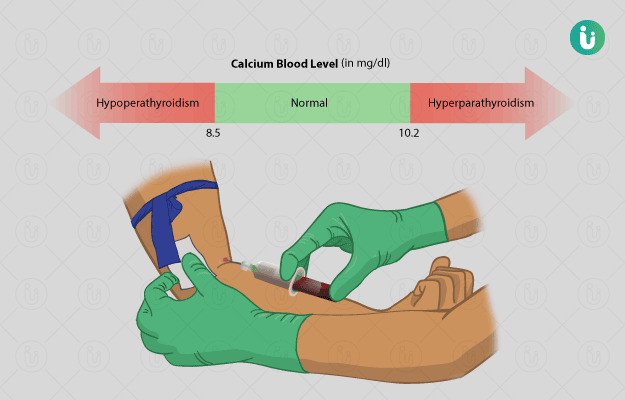What is a Calcium Blood test?
A calcium blood test is one of the routinely performed metabolic tests to measure the amount of calcium circulating in blood. Calcium is the most abundant mineral found in body, with a major proportion (99%) stored in bones and teeth, and the remaining (1%) is found in bloodstream. A small percentage of calcium controls many important functions, such as contraction and dilation of blood vessels, muscle contraction and transmission of signals from one nerve to another.
Calcium balance in body is regulated by the parathyroid hormone (PTH)–vitamin D endocrine axis. PTH is secreted when low levels of calcium are detected in the blood, which further signals calcium from bones to be transferred to the blood in its ionised form. An increase in ionised calcium causes an increase in the production of calcitriol (the active form of Vitamin D) by kidneys, which results in increased absorption of calcium from the gut. A calcium blood test would thus help a clinician detect underlying problems related to bones, thyroid and parathyroid glands, kidney or gut.






























